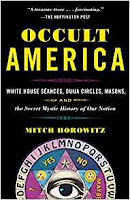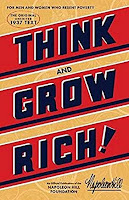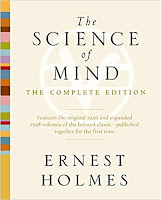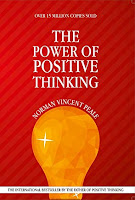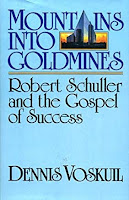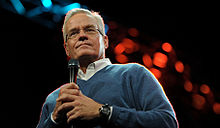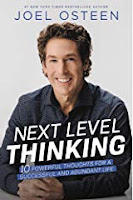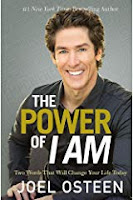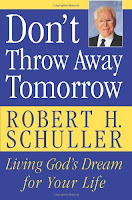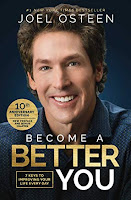“The Evil Eye over Evangelicalism”
 |
| (Source) |
What magician has cast an evil spell on you?
For you used to see the meaning of Jesus Christ’s death
as clearly as though I had shown you a signboard
with a picture of Christ dying on the cross.
~Paul, Galatians 3:1 NLT
From New Thought to New Age
“Bewitched”—within a few years after its founding, the Apostle Paul employed this word, a word associated with ancient occultism, to describe the spiritual state of the Galatian church.[1] A “different gospel” had clandestinely infiltrated the Galatians to spellbind and mesmerize them. They were being seduced by other teachers to embrace another gospel, (i.e., Greek heteros, “another” of a wholly different kind; See Galatians 1:6-7, NASB.). But what was this seductive gospel the “foolish” Galatians embraced?
The context indicates first that the “different gospel” involved a message that distracted the evangelized Galatians from faith in the crucified Christ (Galatians 3:1-3). They were cuddling a mesmerizing message that replaced “the hearing of faith” for “the works of the Law,” that exchanged the dynamic of the Spirit’s working in their lives for the “works of the flesh,” and that reduced man’s dependence upon God (i.e., grace) even as it exalted man’s independence from God (i.e., legalism).
Second, the word “bewitched” indicates that the novel spirituality the Galatians were embracing involved their adopting a mentalist and magical worldview; meaning, that it lays within the power of the human mind to harness unseen spiritual power(s) to work on their behalf and thereby “change” their attitude and “control” their life-circumstances to attain “the good life.”[2] In short, they had succumbed to the age old temptation of Lucifer who promised the original pair, “You will be like God” (Genesis 3:5; Compare Isaiah 14:14.).
The Occultization of Evangelicalism
Over
the last generation, a similar spell appears to have overtaken
evangelicalism, something that has not gone unnoticed by those without
the movement. In their opinion, evangelicalism has been “occultized.”[3]
In a book titled Occult America, Mitch Horowitz,
a spokesman for the occult and esoteric ideas, notes that New Age
religion possesses “a core set of beliefs and a definable point of
view.”[4] He then enumerates these beliefs as follows:
- Belief in the therapeutic value of spiritual or religious ideas.
- Belief in a mind-body connection in health.
- Belief that human consciousness is evolving to higher stages.
- Belief that thoughts, in some greater or lesser measure,
- determine reality.
- Belief that spiritual understanding is available without
- allegiance to a specific religion or doctrine.[5]
Of their attitude toward this New Age system of spirituality, Horowitz notes the double minded attitude
of evangelicals toward it (See James 1:8.). He notes that even while
evangelicals “heaped scorn upon the New Age,” they adopted “some of its most popular therapeutic premises.”[6]
Then he continues: “Late-twentieth- and early-twenty-first-century
megachurches and media ministries rapidly took to counseling
congregants, readers, and television audiences on everything from the
spiritual laws of debt relief and weight loss to the mental secrets of
success.”[7]
As evidence to the point, we witness the formulaic systems of self-improvement and self-help (By the way, this is
legalism—a humanly contrived system of rules and principles that can
operate in life without God.) that have come to dominate the evangelical
message. By plugging into the power of the mind, whether it’s of the
“positivity, possibility, or prosperity” variety, American Christians
expect to tap into their human potential in order to experience success
’n life, and this they can do by harnessing the mental powers within or
by manipulating the spiritual powers without. Not only are mainline
evangelicals using this approach, but also adherents of the charismatic
Word of Faith message.
The challenge for “human
potentialists” is first, to become conscious the laws of attraction by
and through which they can create their success, and then to consciously
apply themselves to live in harmony with those psychological and
spiritual laws. Though these human “potentialists” might give token
assent to God’s working in their lives, the system is designed to work
independent of Him.
Through the influence of the
movement’s media outlets—personalities, preachers, publicists, and
publishers—evangelicalism has come to be dominated by a “formulaic” and
Word of Faith spirituality that enshrines principles for success and
exalts, even idolizes, those who in their life and ministry achieve it. A
seeming never-ending stream of how-to and feel-good books, CDs, and
DVDs emanate from Christian publishers for whom ministry has now become
industry. If you don’t believe it, check out your local Christian book
store, note the genre of books that become overnight Christian best
sellers, and observe the “mega” ministries that feed the fleshly
appetite for worldly success and personal significance residing in the
human heart. In some form or fashion, positivity, possibility and
prosperity themes dominate the evangelical media, and by the droves,
evangelical ministries sell it and people buy it. Truly we are seeing
the fulfillment of Paul’s prediction that in the last days people will “lovers of their own selves… lovers of pleasures more than lovers of God” (2 Timothy 3:1-2, 4, KJV).
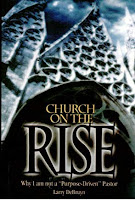 |
| Pastor Larry’s book |
Nevertheless,
accepting Horowitz’s observation that New Age beliefs are enshrined in
the ministry and message of megachurches and ministries, the question
arises, how has the “evil eye” come to bewitch evangelicalism? How has
this “different gospel” grown to cast its spell over the movement?
To
understand the “occultization of evangelicalism,” something of the
philosophy and history of New Thought and its impact upon American
Christianity in general, and the evangelical movement in particular,
needs to be known. To this end, Horowitz’s recent book Occult America is most helpful, for it amplifies and confirms the researched material previously stated by this pastor (Larry DeBruyn) in his book, Church on the Rise: Why I am not a Purpose-Driven Pastor.[8]
New Thought—the Philosophy
During
the late 19th and early 20th centuries, the New Thought movement
asserted itself in America by offering an intellectual, spiritual and
mystical alternative to orthodox Christianity. Though similar to New Age
religion (Horowitz of course, suggests New Thought is
New Age religion!), by a couple of centuries New Thought preceded the
1960s introduction of the New Age spirituality to American culture. As
New Thought advocates argue, the principles and practices of it have
been around for 1000s of years. New thought was just “new” to America.
But just what is it?
In general, New Thought is a
theory of living which states: “Change your thinking and you can change
your life.” To devotees of this theory, the game of life is mentalist;
it’s primarily played out in the brain. According to ANTN (Affiliated
New Thought Network), New Thought is,
a
modern spiritual philosophy stressing the power of right thinking in a
person’s life, the idea that our thoughts and attitudes affect our
experience and that God (or whatever other name a person might have for a
Higher Power) is within the individual.[9]
A prominent
American religious historian labeled this approach to life and faith
“Harmonial religion,” which he defined as follows:
Harmonial
religion encompasses those forms of piety and belief in which spiritual
composure, physical health, and even economic well-being are understood
to flow from a person’s rapport with the cosmos. Human beatitude and
immortality are believed to depend to a great degree on one’s being “in
tune with the infinite.”[10]
In brief, this is the New Thought and Harmonial philosophy of life. We turn to note some of the players.
New Thought—the Players
The
philosophy became popularized in America through the transcendentalism
of Ralph Waldo Emerson (1803-1882) and the Christian Science of Mary
Baker Glover Patterson Eddy (1821-1910).
Others positivity thinkers like Ralph Waldo Trine (1866-1958, In Tune with the Infinite or, Peace Power and Prosperity, 1910),[11] Dale Carnegie (How to Win Friends and Influence People, 1936) and Napoleon Hill (Think and Grow Rich, 1937) peddled mind science to be the key to well-adjusted living.
More contemporary exponents of the New Thought message are Tony Robbins (Awaken the Giant Within, 1991), Zig Ziglar (See You at the Top, 1975, 1977, 2000: “You can change what you are and where you are by changing what goes into your mind.”), Marianne Williamson (CD Meditations for a Miraculous Life, 2007), and Wayne Dyer (Change Your Thoughts—Change Your Life: Living the Wisdom of Tao, 2007), whose weekly TV program has been broadcasted on the Public Broadcasting System (PBS).
According to Horowitz’s summary of New Age beliefs, the themes of these teachers and authors, as well as many others, have been and are being borrowed by leaders who are driving the evangelical movement.[12] By hitching a ride on New Thought/New Age themes, many authors, pastors, and ministries have risen to prominence by peddling a Harmonial message centering on human needs.
Yet the current wave of players, both inside and outside the evangelical movement, is indebted to those who first introduced the “bewitched” message to America. We note the players.
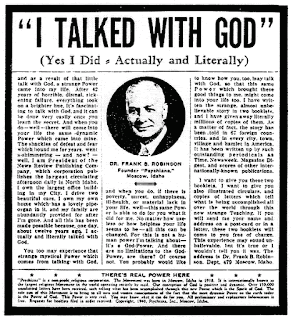 |
| (Source) |
Frank B. Robinson (1886-1948)
The “Miracle Man” of Moscow”—Moscow, Idaho, that is—as Robinson is known, founded an organization called Psychiana. He was one of the more notable spiritualists to tap into a “needs” oriented ministry. Horowitz remarks that, “Robinson, perhaps more than any other figure of his day, understood that mainstream Christian churches either had to address the problems of daily existence or risk irrelevance.”[13] During the post war years of the 1940s and 1950s, liberal and influential religious clergy and commentators commenced a conversation about how to meet “the everyday needs of congregants.”[14] During this period one rabbi wrote “the first religious-therapeutic classic of the postwar era, Peace of Mind.”[15] With Robinson’s influence, Horowitz writes that “the trend was set.”[16] He continues:
The American pulpit was now expected to address workaday concerns. Indeed, the books and sermons emanating from the twenty-first century’s ‘megachurches’ abound in the how-to appeal that marked the Robinson approach. Life coaching, prosperity lessons, marriage counseling, and even weight-loss programs are standard fare in the nation’s largest congregations.[17]
Ernest Holmes (1887–1960)
Indebted to the ideas of Eddy’s Christian Science and therefore believing in the creative potential of the human brain, Ernest Holmes was a charismatic metaphysician and religious teacher possessing a lawyer’s acumen. From his influence grew the movement known as Science of the Mind. Contemporary exponents of Holmes-like teaching include many of those previously mentioned (i.e., Williamson, Ziglar, Robbins, Canfield, etc).
But Holmes’s New Thought message influenced one well-known Protestant religious leader, and “Presto, change-O!” the emphasis of American preaching was about to morph. The God-centered Gospel which regards the death of Christ for sin—the ultimate human malfunction, and the curing of which meets the ultimate human “need”—and His resurrection would become marginalized in American pulpits. During the 20th century, Gospel-centered preaching would be jettisoned in favor of a more therapeutic self-help message incorporating the mind sciences (including psychology) to assist people in solving their life problems and changing their life circumstances. In other words, preachers (We now call them communicators.) designed their messages (Massages?) to meet their parishioners’ everyday needs, or as Paul puts it, (See 2 Timothy 4:3-4.). With the entrance of New Thought into American pulpits and churches, pragmatism began its rule in the lives of both individuals and institutions.
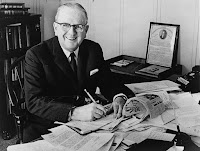 |
| (Source) |
Norman Vincent Peale (1898-1993)
Any understanding of the “bewitching” of American evangelicalism, as to how self-help philosophy has replaced the Gospel, must, I believe, begin with a consideration of the influence of Norman Vincent Peale. Horowitz notes Holmes’ influence upon Peale, that his little book of essays (Creative Mind and Success, 1919) “changed everything for Peale, who entered Boston University’s School of Theology soon after reading it.”[18] Horowitz quotes Peale to have said: “There is no question in my mind that Ernest Holmes’s teachings had helped me on my way.”[19] Horowitz also observes that “Where [Frank B.] Robinson had called for ‘a workable, usable God,’ Peale wrote ‘Christianity is a practical, usable way of life….’”[20] In 1956, Peale wrote in the Christian Herald:
I had long observed the practice of such religious groups as Christian Science, Unity, and Metaphysical organizations. I observed that they all outlined in a simple one-two-three form, the ‘how’ of the spiritual life.[21]
So in “one-two-three” fashion, Peale became the great exponent of what one historian described as, “a composite of Science of Mind, metaphysics, medical and psychological practice, old fashioned Methodist evangelism, and Dutch Reformed Calvinism.”[22] In its formulaic prescription for successful living, today’s psychologized preaching finds precedent in Peale being attracted to and utilizing the New Thought message. As a mainline and liberal Protestant, Peale tapped into New Thought philosophy, incorporated it into his life and ministry (His preaching, his books, and Guideposts magazine exuded the themes.), and brought his influence to bear upon the belief system of millions of Christians during the last half of the 20th century. Not long after the rabbi wrote Peace of Mind (1949), Peale wrote The Power of Positive Thinking (1952). But to hone his message, Peale also tapped into another “source,” a secret source which most of his naïve devotees did not notice.
In addition to Ernest Holmes, the “California mystic” about whom in a 1987 interview Peale was “gracious in tone and lavish in praise, but otherwise did not go “out of his way to credit,”[23] Peale derived his preaching materials from another ominous source.[24] After studying and analyzing Peale’s writings, two authors, one a former Peale protégé and the other a Unitarian minister, arrived at this conclusion. Without crediting his “source,” the two researchers contend Peale extensively borrowed, even at points plagiarized, material from an “‘obscure teacher of occult science’ named Florence Scovel Shinn” (1871-1940),[25] whose writings have been reprinted and marketed because of the popularity of New Age religion.[26] A website bearing her name summarizes her belief system:
In her books she shows that we can enjoy a winning streak of health, prosperity, and happiness. She shares real-life stories with us from her many clients to illustrate how positive attitudes and affirmations invariably succeed in making one a ‘winner’ in life—able to control life’s conditions and release abundance through a knowledge of spiritual law.[27]
In a foreword written in one of her books before he died, Peale admitted to her influence upon him and confessed he had “long used” her occult teachings.[28] Of one of her books Peale wrote:
The Game of Life is filled with wisdom and creative insights. That its teachings will work I know to be a fact, for I’ve long used them myself.[29]
Shinn lived in New York, just blocks away from the church Peale pastored, the Marble Collegiate Church. Confirming that Peale would become a major “channel” for “bewitching” American Christianity, authors Exoo and Tweed think that whatever “the embarrassments” caused by Peale’s plagiarism, “it pales against the discomfiture that millions of mainline Christians, purporting to stand on orthodoxy and Scripture alone, have thus unwittingly embraced the Occult.”[30] We turn now to give attention to Peale’s protégé.
Robert H. Schuller (1926-2015)
Norman Vincent Peale’s legacy is now being felt in evangelicalism via the influence of his soul mate and once fellow minister in the Reformed Church in America, Robert H. Schuller. In his book Mountains Into Goldmines, Professor Dennis Voskuil documented the link—personal, ideological, and historical—between Peale and Robert H. Schuller.[31] Voskuil noted that Schuller “patterned the essential elements of his message after those of Peale” and that “Schuller’s possibility thinking closely resembles Peale’s positive thinking.”[32] Voskuil also stated that Schuller asked Peale to “endorse and preface” some of his early books.[33] On an “Acknowledgments” page of one of those books, Schuller cited indebtedness to Peale. He wrote: “I am most grateful to… ministers Norman Vincent Peale and Raymond J. Lindquist, who have done far more for me than they will ever know.”[34] On a following “Introduction” page, Peale recommended Schuller’s book. “I feel certain,” he wrote, “that any person who will read this book and act upon it will be able to achieve anything he or she wants.”[35] Peale also mentioned he had personally known Schuller over a ten year period. Obviously, both men incorporated Harmonialism into their message. They filled their books and preaching with “aphorisms, anecdotes, personal testimonies, and ‘how to’ lists.”[36] About his relationship to Peale, Schuller said, “Norman Vincent Peale, the greatest positive thinking preacher from a mainline denomination in history preached here often.”[37]
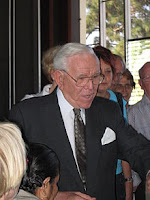 |
| (Source) |
Powerlines, a magazine produced by Crystal Cathedral Ministries, contains an article titled “Four Faithful Followers” that highlights the Peale-Schuller connection. The article cites “three men as the most powerful, positive influencers of his [Dr. Schuller’s] formative ministry years: Dr. Billy Graham, Dr. Norman Vincent Peale, and Bishop Fulton Sheen.”[38] The article relates how “Peale’s wife Ruth was a member of the church governing body that called young Robert Schuller to southern California to begin a church,” and how “Two years later, when Rev. Schuller invited Dr. Peale to deliver a message from the snack bar rooftop of his drive-in theater church, people drove many miles to hear this very popular pastor and author.”[39] It notes that “Peale’s ‘positive thinking’ inspired Schuller’s ‘possibility thinking,’ and [that] the likeminded pair remained lifelong friends.”[40] Thus, a pastor’s “network” had been formed, and presuming there to be strength in numbers, other networks would follow. So we might imagine Peale to have “appallingly” said Schuller:
My dear son Robert, Be strong in the mind of Beelzebub. The ideas of New Thought which you have heard from me in the presence of many witnesses (Holmes, Eddy, Shinn, etc.), entrust these to other unfaithful men that they might teach the life message of New Thought to others also. (Parody on 2 Timothy 2:1-2)
So it has come about that by the Crystal Cathedral’s Institute for Successful Church Leadership, Peale and Schuller’s message and methods have been passed on to minions of other ministers. As to the unbiblical and unorthodox influence of both men upon the face and heart of American evangelicalism, D.A. Carson observes, “Playing fast and loose with the Bible needed a liberal audience in the days of Norman Vincent Peale, but now, as the case of Robert Schuller indicates, professed conservatives eat it up.”[41] The influence of Schuller upon evangelicalism should not be underestimated, for as Voskuil noted decades ago, “Schuller’s positive brand of evangelicalism seems indeed to have become a new orthodoxy.”[42]
Schuller’s “orthodoxy” has extended its influence upon evangelicalism through two of today’s most notable pastors, Bill Hybels (the Willow Creek Association) and Rick Warren (Saddleback Church and the Purpose Driven movement), both of whom learned their way of “doing” church from Schuller, and established networks of thousands of pastors and churches to spread their pragmatic “systems” of church growth all over the world.[43]
Bill Hybels (1951-Present)
Schuller has called Bill Hybels “one of the greatest ministers in the world.”[44] In their book Rediscovering Church, Lynne and Bill Hybels recount first meeting Schuller at the Crystal Cathedral in the mid 1970s, an introduction they call a “Divine Encounter.”[45] As a result of that first meeting, Schuller came to Moline, Illinois, to help Hybels conduct a fundraiser to purchase the land to build a church, and Willow Creek Community Church was launched. Hybels has credited Schuller with being a mentor to him, has preached on Hour of Power telecasts, has promoted Schuller in various ads in Christianity Today, and has frequently spoken at seminars organized by Schuller. No doubt, Hybels derived much of his philosophy about church growth (seeker-sensitive, user-friendly, and audience-driven) and preaching style under Schuller’s tutelage. Hybels remains Schuller’s friend. But the connection between Warren and Schuller is not as overt.
 |
| (Source) |
Rick Warren (1954-Present)
During his last year (late 1970s) as a student at Southwestern Baptist Seminary in Fort Worth, Texas, Rick Warren and his wife took a trip to Southern California to visit Schuller and the Crystal Cathedral. After working through their initial skepticism about his church growth philosophy, the couple came away impressed by Schuller’s ministry and his methods for starting and building a church.[46]
Though enamored with Schuller’s methods, Warren has tried to separate himself from Schuller’s message. According to Richard Abanes, in 1998, Warren distanced himself from Schuller for reason of Schuller’s syncretism (All religions contain spiritual truth.), pluralism (There are many paths that lead to the same God.), and inter-spirituality (The Mormon Stephen Covey spoke at the Crystal Cathedral.).[47]
But consistent with the “positivity and possibility” mood of preaching established by Peale and Schuller, The Wall Street Journal reported that Rick Warren’s “needs” oriented “sermons rarely linger on self-denial and fighting sin, instead focusing on healing modern American angst, such as troubled marriages and stress.”[48] About his preaching style, the Orange County Register noted:
Warren is also regarded as a savvy interpreter of his culture and generation. He is famous (some say infamous) for retiring the fire-and-brimstone formality of his Southern Baptist forefathers. In its place, he pioneered a sunny, laid-back, Southern Californian “relatability,” transforming church from an old-fashioned penance into a contemporary celebration.[49]
Correspondingly, Warren diminishes the importance of Bible doctrine (i.e., teaching) for Christian living in The Purpose Driven Life. He writes: “Today many assume that spiritual maturity is measured by the amount of biblical information and doctrine you know.”[50] Thus like Robert Schuller who in 1982, called for a new reformation centering on psychological self-esteem, twenty-five years later Rick Warren is also calling for a new reformation.[51] He stated:
The first Reformation was about belief. This one needs to be about behavior. We need a reformation not of creeds but deeds.[52]
In this connection, along with a host of other evangelical and other notables (Larry King, President George H.W. Bush, George Foreman, and Ben Stein) Rick Warren’s wife Kay was a featured speaker at Schuller’s Rethink conference in early 2008.[53]
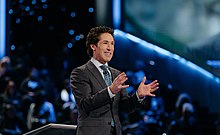 |
| (Source) |
Joel Osteen (1963-Present)
Though seemingly independent of the Peale-Schuller influence, another popular media preacher needs to be noted. On CBS’ The Early Show Joel Osteen admitted to the similarity between his and Peale’s “positivity” message. During the course of the interview, interviewer Harry Smith compared Osteen’s preaching to Peale’s, a comparison with which Osteen agreed. He confessed:
It’s amazing. I was preaching two or three years when someone gave me one of his books. I was going to say, “He thinks like me. I think like him.” It seems like it’s the same base there. God is on our side and if you think right, I believe, like Norman Vincent Peale did, that your life follows your thoughts. You get up negative, oppressive, your day will go that way.[54]
Note: “Peale thinks like me. I (Osteen) think like him.” Do we connect the dots?
Forty-thousand persons attend Lakewood Church, now the largest church in America, which meets at the former Compaq Center in Houston, Texas. Both the smiling Osteen and his wife Victoria exude every appearance of success ’n life. He regularly appears on TV talk shows. Several million viewers follow his weekly Lakewood Church television broadcast. Osteen’s books, Your Best Life Now: 7 Steps To Living At Your Full Potential (2004), Become a Better You: 7 Keys to Improving Your Life Everyday (2007), and It’s Your Time: Activate Your Faith, Achieve Your Dreams and Increase in God’s Favor (2009) remain best sellers. As is readily observable, the titles ooze with a human potential message, one of the key ingredients in New Thought philosophy, which when combined with a dab of charismatic Word of Faith spirituality, currently makes Osteen’s “positivity” message one of the most influential on the American religious scene.
Upon being interviewed by a major new magazine, the following exchange took place between Joel Osteen and a reporter:
REPORTER: You get criticized a lot for your relentless positivity. Why?
JOEL OSTEEN: I think maybe it’s because it’s not old school. People are used to being beaten down. They’re used to [churches] condemning people to make them feel so bad so that they’ll repent, so they’ll know that they’re sinners, but I think there’s a different approach.[55]
According to the schmoozing style of “needs-themed” preaching so prevalent among today’s pastor-communicators, the most abhorrent thing a pastor could do is make members of the audience feel uncomfortable about their sins and “the need” of repentance. In her biography of Peale, God’s Salesman, Carol George wrote that like Osteen he knew what turned people off. “He knew that to talk about sin, suffering, and guilt was not going to produce the attendance numbers he wanted.”[56] But of such an omission, Cornelius Plantinga notes:
For the Christian church (even in its recently popular seeker services) to ignore, euphemize, or otherwise mute the lethal reality of sin is to cut the nerve of the gospel. For the sober truth is that without full disclosure on sin, the gospel of grace becomes impertinent, unnecessary, and finally uninteresting.[57]
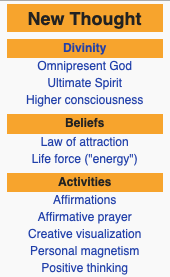 |
| (Source) |
Beyond positivity, possibility and potentiality
In a Wall Street Journal article, Pastor Bob DeWaay evaluated that the seeker-sensitive and audience-driven way of doing church is “‘gutting’ Christianity. The Bible’s theme” he continues, “is about redemption and atonement, not finding meaning and solving problems.”[58]
The Gospel of grace means that God in His power does for us what we cannot do for ourselves. The Gospel is Good News not “good advice.” Yet the message of the New Testament Gospel is the polar opposite from Joel Osteen’s invitation to, “Discover the Champion in You.”[59] God does not save champions (1 Corinthians 1:26-29). God saves sinners and, frankly, I tire of the pervasive “new legalistic” message of the mass of positivity and possibility ministries who dispense their psychological solutions and steps-to-recovery programs in the same way that teachers of human potential do (i.e., Tony Robbins, Wayne Dyer, etc.). Having ministered to hundreds of terminally ill people for almost 40 years of local church ministry, I cannot imagine myself counseling dying persons that they need to “discover the champion” within. The discovering-the-champion-within formula will not work in the face of death, and though it might provide the illusion of doing so, neither does it really work in life. A champion does not lie within us below (See Romans 7:14-25.). We need rather, the Savior who’s from without and above!
But taking their cue from the Willow Creek, Purpose Driven or the Lakewood paradigm of church success, thousands of pastors succumb to pressure exerted by their congregants (be like Bill, do it like Rick, or smile like Joel), manage their ministries according to pragmatic plans and principles designed to achieve success at the professional level, and script their messages to aid congregants in experiencing that same success at a personal level. Since the advent of this way of “doing” church a generation ago, congregants now “worship” (Worship ought to be about God.) expecting their “felt needs” to be met (It’s about them, not Him!). By the way… it’s always mystified me as to how pastors can intuit exactly what those felt needs might be. Yet whether such “needs” are real or voyeuristically imagined, one minister observes of this culturized brand of preaching and way of doing ministry:
Now, if you’re a pastor in Honduras, it might be okay to define your ministry as meeting needs, because more people in Honduras have interesting biblical needs—food, clothing, housing. But most people in the churches I know get those needs met without prayer. So they’ve moved on to “needs” like orgasm, a satisfying career, an enjoyable love life, a positive outlook on life, and stuff the Bible has absolutely no interest in.[60]
Gene Veith has pointed out that American evangelical religion has become dominated by a Moralistic Therapeutic Deism which is passed off as Christian, but in reality is a contra-Gospel composed of “pop psychology, self-help platitudes, and the power of positive thinking.”[61] So we are driven to ask the question, why has such a “bewitching” Gospel grown to exert this overwhelming influence upon the evangelical church? The change can be accounted for on the basis of evangelicals succumbing to the three enemies of the Christian life—the world, the flesh, and the devil.
New Thought—the Mind of the World
The values and mores of any host culture threaten how people perceive the Gospel. Being one of rugged individualism, self-reliance and personal initiative, the American culture poses a great obstacle to the Gospel of God’s grace, His unmerited and underserved favor toward those who will come to Him by faith in Jesus Christ (Ephesians 2:8-9). Typical is the American saying, “God helps those who help themselves,” and traditionally, we are a can-do people who throughout history have generously helped ourselves. This overall tendency makes us especially vulnerable to self-help religion. In part, this may explain why do-it-yourself formulaic spirituality dominates evangelical media, pulpits and churches. When combined with a distorted picture of Christianity (i.e., Moralistic Therapeutic Deism), the legalism of self-help laws appeals to the fleshly nature of people and pre-empts and obscures the divine message of God’s grace in Christ. As Paul wrote the Galatians, “Are you so foolish? Having begun by the Spirit, are you now being perfected by the flesh?” (Galatians 3:3).
New Thought—the Mind of the Flesh
Neither does being mental equate to being spiritual. In Scripture, the mind and the Spirit are not to be confused or confounded. Paul wrote in Romans: “For the mind [Greek, phronēma] set on the flesh is death, but the mind [phronēma] set on the Spirit is life and peace, because the mind [phronēma] set on the flesh is hostile toward God; for it does not subject itself to the law of God, for it is not even able to do so; and those who are in the flesh cannot please God” (Emphasis Mine, Romans 8:6-8). Elsewhere the apostle described men who opposed Moses as possessing “depraved minds” (2 Timothy 3:8, NIV). But because the human mind is non-material, even supra-material, it can provide the illusion of being spiritual, and therein lays New Thought’s deception.
In our unregenerate state of being, we are a carnal people who will indulge both “the desires of the flesh and… the mind” (Emphasis mine, Ephesians 2:3, NASB). This is to say, mental-ism possesses no power to infuse God’s Spirit in the heart of a person, to change the soul’s capacity to have a relationship and fellowship with God that otherwise lies dead in the human heart (Ephesians 2:1). Only the sovereign Spirit can create this capacity in a person’s heart (John 3:6). A person is either a SAINT or an AIN’T, either indwelt by the Spirit of Christ or not, either a pneumatic or not (Romans 8:9). Absent the mind of the Spirit, a person’s thought life will remain depraved and corrupt.
Joel Osteen’s book may invite his readers to Become a Better You, but the overriding question is how? Osteen offers seven keys, none of which involves the divine regeneration required to implant “the mind of Christ” in the human psyche, the mind-set that will stimulate a person to “be obedient to God’s revelation.”[62] To Osteen, developing optimism about yourself, your life and your God become the reference for and the substance of faith, the definition of what it means to “believe.” But in the mind games he plays with his followers, Osteen’s good advice ignores God’s Good News.
The New Thought message (i.e., positivity, possibility and prosperity) is a spiritual placebo upon the collective psyche of religious America, a medicine that while it indulges its patients, does not heal them. The Chinese say that it’s no use trying to carve rotten wood. New Thought is so much trying to carve the rotten wood of depraved and unregenerate hearts (See Jeremiah 17:9.) So the Puritan John Owen (1616-1683) observed that, “in the Scripture the deceit of the mind is commonly laid down as the principle of all sin whatever….”[63]
New Thought—the Mind of the Devil
The appeal of New Thought lies, I believe, in the hidden power of it. So in the Old Testament, the children of Israel were to have nothing to do with occult (occult means hidden) powers, knowledge or sources, with what God called an abomination (Deuteronomy 18:9-12). In the early church revival at Ephesus, many believers “which used curious arts brought their books together, and burned them before all men: and they counted the price of them, and found it fifty thousand pieces of silver” (Acts 19:19, KJV). The result was that the Word of God grew mightily and prevailed (Acts 19:20).
Yet contrary to God’s prohibition, and the early church’s example, here we have a network of contemporary influential Protestant and evangelical ministers whose themes of preaching are indebted to an occult belief system rooted in New Thought, and whose books, if their writings had been extant in that apostolic church, would have been burned! The Word of God is not really growing and prevailing in the contemporary church for reason that a bewitching message has mesmerized its collective mind (See Amos 8:11.). Paul’s statement to the Corinthians is relevant. He wrote: “But I am afraid, lest as the serpent deceived Eve by his craftiness, your minds [Greek, noēma] should be led astray from the simplicity and purity of devotion to Christ” (2 Corinthians 11:3). The contemporary church is being occultized by the mental devices (Greek, noēma) and methods (Greek, methodeías) of Satan (2 Corinthians 2:11; Ephesians 6:11).
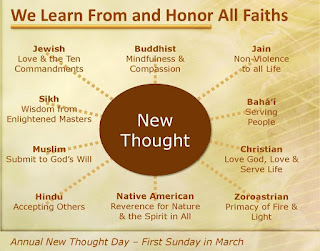 |
| (Source) |
Conclusion
Nothing succeeds like success, and a generation ago one evangelical leader noted that evangelicals were worshipping a “success goddess,” something New Thought philosophy promises and its ministers project, and in an image oriented age, that aura proves very charming to worldly evangelicals who covet success ’n life.[64] New Thought is a worldly-wise philosophy of life masquerading itself as Christian. Harmonialism is a spiritual pretension that is, “a form of godliness” that denies “the power thereof” (2 Timothy 3:5, KJV; Read 3:1-9.). After all, who needs Providence if we’ve got principles? Thus, the apostle instructs believers “turn away” from messengers who teach this worldly, narcissistic and self-indulgent philosophy of life. Such earth-bound thinking easily blinds “the minds [Greek, noēma] of the unbelieving” from the “the light of the gospel of the glory of Christ” (2 Corinthians 4:3-4).
The New Thought message of positivity, possibility and prosperity is so earthly minded that it’s no heavenly good. The preachers of harmonialism—they cry “positivity, positivity”—are akin to the false prophets of Jeremiah’s day who prophesied, “Peace, peace; when there is no peace” (Jeremiah 6:14; 8:11, KJV). About such the false teachers of mind science Paul stated: “For many walk, of whom I have told you often . . . that they are the enemies of the cross of Christ: …who mind [Greek, phroneō] earthly things” (Philippians 3:18-19).
The invasion of this occult philosophy illustrates how Satan infiltrates and seduces the church as he “disguises himself as an angel of light” (2 Corinthians 11:13). Remember: the mind can play tricks! Therefore Paul tells us to take “every thought [Greek, noēma] captive to the obedience of Christ” (2 Corinthians 10:3, 5), and to “Set your mind [Greek, phroneō] on the things above, not on the things that are on earth” (Colossians 3:2, NASB).
ENDNOTES
1. “The meaning here is to ‘captivate by falsehood’.” The Galatians were so charmed by the message of the Judaizers that they “strayed from the gospel of faith in the crucified Christ.” See J.W.D.H., “Bewitch,” The International Standard Bible Encyclopedia, Volume I, Geoffrey W. Bromiley, General Editor (Grand Rapids: William B. Eerdmans Publishing Company, 1979) 481. Of the Galatians, Bruce points out that their “new behavior was so strange, so completely at odds with the liberating message which they had previously accepted, that it appeared as if someone had put a spell on them.” See F.F. Bruce, The Epistle to the Galatians, A Commentary on the Greek Text (Grand Rapids: William B. Eerdmans Publishing Company, 1982) 148.
2. Paul’s use of the word “bewitched” (Greek, baskainō), suggests the believers were “mislead by an evil eye.” See W. E. Vine, Merrill F. Unger, and William White, Jr., An Expository Dictionary of Biblical Words (Nashville: Thomas Nelson Publishers, 1984) 117. The word may indicate that a form of ancient Kabalistic mysticism was influencing the congregation. Thayer states that baskainō refers to “those who lead others into error by wicked arts.” See John Henry Thayer, Greek-English Lexicon of the New Testament (Grand Rapids: Zondervan Publishing House, 1975 Reprint) 98.
3. In agreement with Horowitz’s book which will be cited next, Harold Bloom notes that if considered a religion (and it is), “Gnosticism… is now, and has been, the hidden religion of the United States, the American Religion proper.” The American Religion: The Emergence of the Post-Christian Nation (New York: Simon & Schuster, 1992) 50.
4. Mitch Horowitz, Occult America, The Secret History of How Mysticism Shaped Our Nation (New York: Bantam Books, a division of Random House, Inc., 2009) 257.
5. Ibid.
6. Italics mine, ibid. 256. In his use of the word “evangelism,” I believe the author to have meant “evangelicalism.” Evangelism refers to an activity. Evangelicalism refers to the movement Horowitz cites.
7. Ibid.
8. Larry DeBruyn, Church on the Rise, Why I am not a “purpose-Driven” Pastor (Indianapolis: Moeller Printing Company, Inc, 2007) 39-64.
9. “The Philosophy of New Thought,” Affiliated New thought Network, 2006. Online at, www.newthought.org/new_thought.html
10. Sydney E. Ahlstrom, A Religious History of the American People (New Haven: Yale University Press, 1972) 1019.
11. Ahlstrom calls Trine the “patriarch of the modern health and harmony tradition.” Ibid. 1030. The Front Matter of one of his books states: “Within yourself lies the cause of whatever enters your life. To come into the full realization of your own awakened interior powers is to be able to condition your life in exact accord with what you would have it.” See Ralph Waldo Trine, In Tune with the Infinite or, Fulness of Peace Power and Plenty (New York: Dodge Publishing Company, 1910).
12. A list of 25 top New Thought gurus can be observed at M!ND PERK.com. The list includes such notables as Jack Canfield, Depaak Chopra, Stephen R. Covey, and Dr. Phil McGraw. As expected, Norman Vincent Peale is included. Oneline at http://www.mindperk.com/home.htm.
13 Horowitz, 115.
14. Ibid.
15. Ibid.
16. Ibid.
17. Ibid.
18. Ibid. 98.
19. Ibid. Horowitz quotes Peale.
20. Ibid. 115.
21. Dennis Voskuil, Mountains Into Goldmines, Robert Schuller and the Gospel of Success (Grand Rapids: William B. Eerdmans Publishing Company, 1983) 172, Footnote 21.
22. Richard Pierard quoted by George Mair, A Life With Purpose (New York: The Berkley Publishing Group, 2005) 96-97.
23. Horowitz, 99.
24. “Norman Vincent Peale Accused of Plagiarism,” The Indianapolis Star, August 3, 1995, C2.
25. George D. Exoo and John Gregory Tweed, “Peale’s Secret Source,” Lutheran Quarterly: A Journal for the Evangelical Lutheran Church, Vol. IX, No. 2, Summer 1995, Marquette University, Milwaukee, Wisconsin, 151-175.
26. Shinn was an artist and metaphysical teacher who wrote many self-help books.
27. Online at: www.florencescovelshinn.wwwhubs.com/.
28. Florence Scovel Shinn, The Writings of Florence Scovel Shinn (New York: Fireside, A Division of Simon and Schuster, 1989).
29. Ibid. Peale’s endorsement is available online at: www.amazon.com/gp/reader/0875166105/ref=sib_dp_pt/103-2701950-7412657#reader-link
30. Exoo and Tweed, “Secret Source,” 151.
31. Voskuil, Mountains Into Goldmines, 72, 124-128.
32. Ibid. 128.
33. Ibid. 72.
34. Robert H. Schuller, Move Ahead With Possibility Thinking (Carmel, New York: Guideposts Associates, Inc., 1967).
35. Ibid.
36. Voskuil, Mountains Into Goldmines, 128.
37. See Guest Interviews, “Robert H. Schuller Announcement,” Crystal Cathedral, November 2, 2008. Online at: http://www.crystalcathedral.org/hour_of_power/interviews/detail.php?contentid=3393.
38. “Four Faithful Followers,” Powerlines (Garden Grove, CA: Crystal Cathedral Ministries, June 2009) 1-2. Online At: http://www.crystalcathedral.org/events_news/powerlines/pdf/june_09.pdf.
39. Ibid.
40. Ibid.
41. D.A. Carson quoting George A. Lindbeck, The Gagging of God (Grand Rapids: ZondervanPublishingHouse, 1996) 480.
42. Voskuil, Voskuil, Mountains Into Goldmines, 131.
43. On the Crystal Cathedral website, Schuller explains the importance local churches becoming “missional” as he defines it. Schuller writes: “This spirit is the underlining principle that we have taught to over 50,000 pastors who over the years attended the Institute for Successful Church Leadership. These pastors returned home and built upon it and even surpassed what they learned from me. Bill Hybels, Rick Warren, and many other pastors of most of the biggest churches today are a result of applying that principle.” See Guest Interviews, “Robert H. Schuller Announcement,” Crystal Cathedral, November 2, 2008. Online at: http://www.crystalcathedral.org/hour_of_power/interviews/detail.php?contentid=3393.
44. See Guest Interviews, “Robert H. Schuller Announcement,” Crystal Cathedral, November 2, 2008, at http://www.crystalcathedral.org/hour_of_power/interviews/detail.php?contentid=3393.
45. For Schuller’s connection to Hybels, see Lynne & Bill Hybels, Rediscovering Church: The Story and Vision of Willow Creek Community Church (Grand Rapids, MI: Zondervan Publishing House, 1995) 69-70. The authors call their original encounter with Schuller a “Divine Encounter.” (p. 69)
46. Tim Stafford, “A Regular Purpose-Driven Guy,” Christianity Today, November 18, 2002. Online at, www. ctlibrary.com/ct/2002/november18/1.42.html
47. Richard Abanes, Rick Warren and the Purpose that Drives Him (Eugene: Harvest House Publishers, 2005) 99-106. Nevertheless, as Abanes’ book bears out, in the early days of Saddleback Rick Warren and his wife were involved at Schuller’s Institute for Successful Church Leadership, where he first gleaned methods of church management, which he later refined under the tutelage of Peter Drucker. Though perhaps not personal in the beginning, the connection between Schuller and Warren (between their methods and their message) is there, all subsequent denials by the Warren camp not withstanding. See Mair, Life With Purpose, and Warren Smith, Deceived On Purpose, The New Age Implications of the Purpose-Driven Church (Magalia, California: Mountain Stream Press, 2004).
48. Suzanne Sataline, “A Popular Strategy for Church Growth Splits Congregants,” The Wall Street Journal, Tuesday, September 5, 2006, A1, 10. Online at www.wsj.com/article_email/SB115741786888753373-lMyQjAxMDE2NTA3NTQwMTU3Wj.html
49, Qwendolyn Driscoll, “Rick Warren Goes Global,” The Orange County Register, Sunday, August 27, 2006. Online at www.ocregister.com/ocregister/homepage/abox/article_1256351.php.
Of his visit to Saddleback and interview of a “bohemian” looking couple who had just been baptized, but had formerly been devoted to Wicca, Jeffrey Sheler reports their testimony: “Being in Wicca helped bring us to this place [i.e., being baptized] in our lives. The goddess actually brought us closer to Christ.” As Sheler observes, Saddleback’s seeker-sensitive system had apparently worked for the couple.
But Sheler muses, “Had they been hit up front with the more exclusivist doctrines of classic Christianity, it is doubtful they would have begun the journey of faith. I wondered if they would feel deceived when they learned the rest of the story.” See Jeffrey L. Sheler, Believers, A Journey Into Evangelical America (New York: Viking Penguin Group, 2006) 133-136. If it were preached to them, how much of “the rest of the story” would offend “the rest” of the seeker-sensitive crowd?
50. Rick Warren, The Purpose Driven Life (Grand Rapids: Zondervan Publishing House, 2002) 183. I would contend that while the Christian faith is more than doctrine, it’s certainly less than correct biblical teaching and doctrine. There can be no transformation where there is no information, and biblical beliefs inform biblical behavior.
51. Robert H. Schuller, Self-Esteem: The New Reformation (Waco: Word Books, 1982).
52. Trennis Henderson, “Rick Warren challenges Baptists to launch ‘new reformation’,” Baptist Congress Today, July 30, 2005. Online at www.bwanet.org/Congress/congresstoday31b.htm.
53. Online: http://www.ccn.tv/contactus/giveinfoRethinkZeal.htm.
54. “Osteen: God Is On Your Side,” The Early Show, CBS Broadcasting Inc., October 21, 2005. Transcript online at: www.cbsnews.com/stories/2005/10/21/earlyshow/leisure/books/main961627.shtml.
55. Carolyn Kliener Butler, “Sermon With a Smile,” U.S. News & World Report, October 3, 2005, 57.
56. Cited by Mair, Life With Purpose, 98.
57. Cornelius Plantinga Jr., quoted by James I. Packer, “Doing It My Way: Are We Born Rebels?” This We Believe, John N. Akers, John H. Armstrong, and John D. Woodbridge, General Editors (Grand Rapids: Zondervan Publishing House, 2000) 44.
58. Ibid.
59. “Discover the Champion in You,” Joel Osteen Ministries. See www.joelosteen.lakewood.cc/site/PageServer?pagename=JOM_homepage
60. Italics mine, William H. Willimon quoted by Al Mohler, “The Problem of Preaching to Felt Needs,” online at www.albertmohler.com.
61. Gene Edward Veith, “A Nation of Deists,” World, June 25, 2005, 28.
62. David K. Lowery, “1 Corinthians,” The Bible Knowledge Commentary, John F. Walvoord and Roy B. Zuck, Editors (Wheaton, IL: Victor Books, 1983) 510.
63. John Owen, The John Owen Collection (Rio, WI: Ages Software): Book 2 “A Discourse Concerning the Holy Spirit,” Chapter 3 “Work of the Holy Spirit with Respect unto the Head of the New Creation—the Human Nature of Christ,” 331.
64. Vernon C. Grounds, “Faith to Face Failure, Or What’s So Great About Success?” Christianity Today, December 9, 1977, 13.
*“BEWITCHED!
The Evil Eye over Evangelicalism” was the title of the original article by the
late Pastor Larry DeBruyn, originally published nine years ago in the
March/April 2010 (Vol. 21, No. 2) issue of the Discernment Newsletter. We ran an excerpt of it on March 29, 2010 on Herescope. We
have received permission from the late Pastor Larry DeBruyn’s wife to
republish this article in its entirety. We consider this to be one of
Pastor DeBruyn’s best. Herein he expertly explains clearly and
concisely how the occult-based philosophy known as “New Thought” has
come to be part of the doctrines and practices of the evangelical
movement. This Herescope version has been slightly modified for blog posting.

